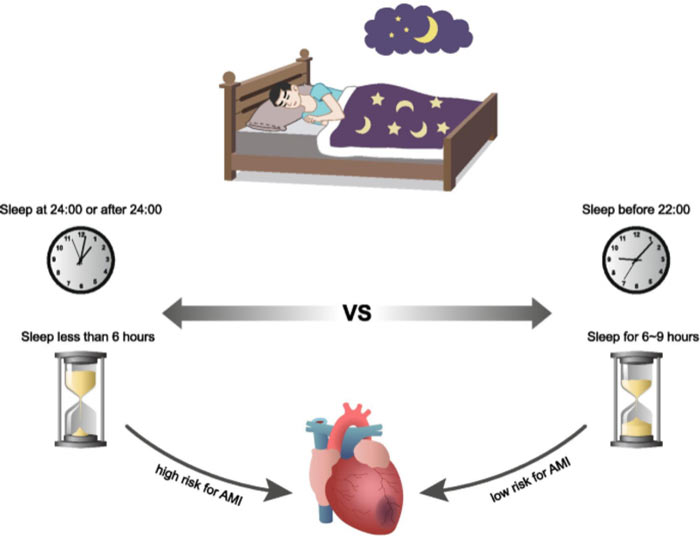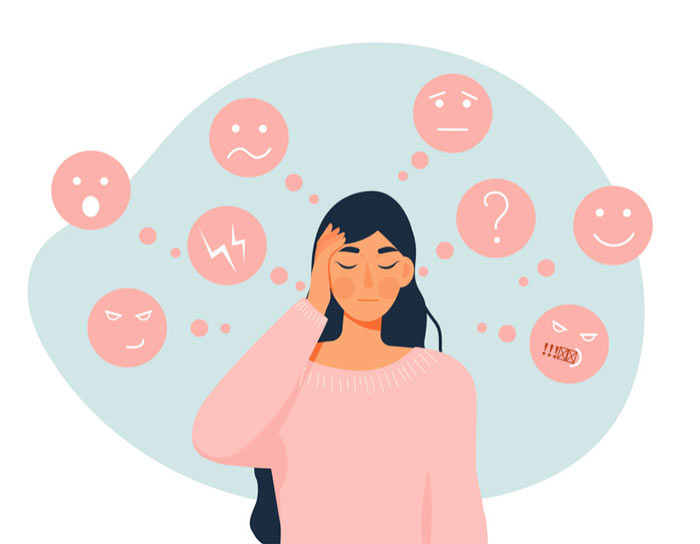In today's fast-paced world, our hectic schedules often relegate sleep to a secondary position. Yet, the ramifications of this disregard stretch significantly further than mere morning grogginess. Sleep is an integral component of overall health. It profoundly influences weight management, heart disease prevalence, and mental well-being. The article plunges into the intricate relationship between sleep and an array of health issues, illuminating a crucial aspect often neglected which is the paramount significance of adequate nightly rest.
Sleep Health - A Foundation for Well-being
Understanding the Basics
Quality sleep is not merely a luxury, but an essential requirement for robust health. Sleep health manifests in both duration and quality. Most adults necessitate seven to nine hours each night, a figure that should not be underestimated.
The sleep cycle encompasses two significant stages. REM (Rapid Eye Movement) and non-REM are vital for physical restoration as well as mental rejuvenation.
Impacts of Poor Sleep on Weight
The delicate balance of hunger and satiety-regulating hormones gets disrupted by inadequate sleep. Leptin, the hormone that signals fullness, diminishes. In contrast, ghrelin known as a hunger hormone, elevates.
This frequent hormonal imbalance frequently results in overeating. It particularly induces cravings for high-calorie, sugary foods. The cumulative effect can result in weight gain and obesity.
Sleep Disorders - The Underestimated Culprits
Insomnia: A Common Culprit
Difficulty in falling or maintaining sleep characterizes insomnia, a prevalent sleep disorder. Not only does chronic insomnia impair daily functioning, but it also escalates the risk of obesity development, diabetes, and cardiovascular diseases.
Sleep Apnea: A Silent Threat
Interrupted breathing during sleep, a hallmark of sleep apnea, indeed presents a substantial cardiovascular risk. The heart labors under repeated pauses in respiration and blood pressure escalates. Consequently, the threat of heart disease and stroke intensifies. Furthermore, the chronic fatigue induced by this condition may trigger weight gain and depression.
The Link Between Sleep and Heart Health
Cardiovascular Impact of Poor Sleep
A symbiotic relationship exists between the heart and sleep. The persistence of chronic sleep deprivation can escalate the risk of hypertension, atherosclerosis, and irregular heart rhythms.

Moreover, elevated levels of cortisol, the stress hormone due to insufficient rest, contribute significantly to inflammation within our cardiovascular system.
Understanding the Circadian Rhythm
The circadian rhythm, the internal clock of the body, significantly influences cardiovascular health. Disruptions in this rhythm, induced by irregular sleep patterns or shift work rather than natural causes, may escalate one's susceptibility to heart disease.
To support your circadian cycle and consequently maintain optimal heart health. You must adhere consistently to a sleep schedule.
Depression - A Two-Way Street with Sleep
Impact of Poor Sleep on Mental Health
Sleep and mental health maintain a bidirectional relationship. Sleep disorders may contribute to the onset of mental health issues, while conditions such as depression and anxiety can disrupt sleep patterns.
Amplifying emotional reactivity, sleep deprivation intensifies the difficulty in managing stress and coping with daily challenges.
Addressing Sleep to Improve Mental Well-being
Prioritizing sleep is an integral facet of mental health care. By establishing a bedtime routine, creating an environment conducive to comfortable rest, and addressing any latent sleep disorders, you can make significant contributions toward alleviating symptoms associated with depression and anxiety.
Effects of Poor Sleep on Overall Health
Quality sleep, a cornerstone of overall health, pivots crucially to support the body's diverse physiological functions. Compromised sleep, be it from disorders or insufficient duration, triggers an alarming chain reaction of detrimental effects that span across various aspects of well-being.
1. Immune System Compromise
The immune system and sleep demonstrate a bidirectional relationship. During sleep, the immune system releases cytokines. These are vital in fighting infections and reducing inflammation. A deficiency of adequate sleep weakens our body's ability to respond immunologically.
That’s why we become more susceptible to infection. An increased risk of illnesses, including the common cold and more severe conditions, is a consequence of chronic sleep deprivation links to.
2. Cognitive Impairment and Memory Deficits
For cognitive functions, memory consolidation, learning, and problem-solving: adequate sleep is indispensable. Impairing these processes, poor sleep leads to memory deficits and reduces the ability to concentrate.
Moreover, chronic sleep deprivation correlates with an escalated risk of neurodegenerative conditions like Alzheimer's disease.
3. Mood Disorders and Emotional Instability
Beyond depression and anxiety, poor sleep noticeably impacts mental health. It does so by fostering emotional instability, heightening irritability, and elevating stress levels through sleep deprivation.

Moreover, compromised regulation of emotions in the brain leads to an increased susceptibility to mood disorders.
4. Metabolic Dysregulation and Hormonal Imbalance
The intricate balance of metabolism-regulating hormones suffers disruption from inadequate sleep. Such disruptions frequently trigger an escalated appetite, especially for sugary and high-calorie foods. This amplifies the risk of insulin resistance development and type 2 diabetes, underscoring the complex relationship between sleep, metabolism, and hormonal regulation.
5. Chronic Inflammation and Oxidative Stress
A state of chronic inflammation and oxidative stress in the body is triggered by sleep deprivation. Various chronic conditions, including cardiovascular diseases, diabetes, and certain cancers are linked to this inflammatory response.
The body uses adequate sleep as a crucial period for repair and regeneration which helps mitigate inflammation and oxidative damage.
6. Impaired Physical Performance and Increased Injury Risk
For optimal performance and recovery, athletes and active individuals depend on sufficient sleep. Poor sleep compromises not only their reaction times but also coordination. Indeed, it increases the peril of accidents and injuries.
Furthermore, during periods of deep slumber, the time when production is highest for growth hormone (a vital component in muscle repair).
7. Increased Risk of Chronic Diseases
Beyond immediate health concerns, poor sleep actively contributes to chronic disease development; this signifies the extensive ramifications of inadequate rest. Chronic sleep deprivation exhibits robust associations with conditions like cardiovascular diseases, obesity, diabetes, and specific cancers; thus underlining its significant role in staving off long-term health issues' onset: an indisputable testament to the crucial importance of sound slumber.
In navigating modern life's demands, we should underscore the importance of cultivating good sleep habits. This is not just for immediate well-being but also significantly impacts long-term health, recognizing and addressing potential consequences from sleep deprivation are crucial steps in this process.
Conclusively, we cannot overstate the impact of sleep on our overall health. It influences weight management, heart health, and mental well-being too. The effects of inadequate sleep are profound and extensive.
Emphasizing the intricate relationship between sleep and diverse health issues underlines the necessity to prioritize sound slumber as a fundamental pillar in maintaining an optimal healthy lifestyle. Navigating the demands of our daily lives, we must not overlook how a good night's rest can transform and nurture our physical and mental well-being.







